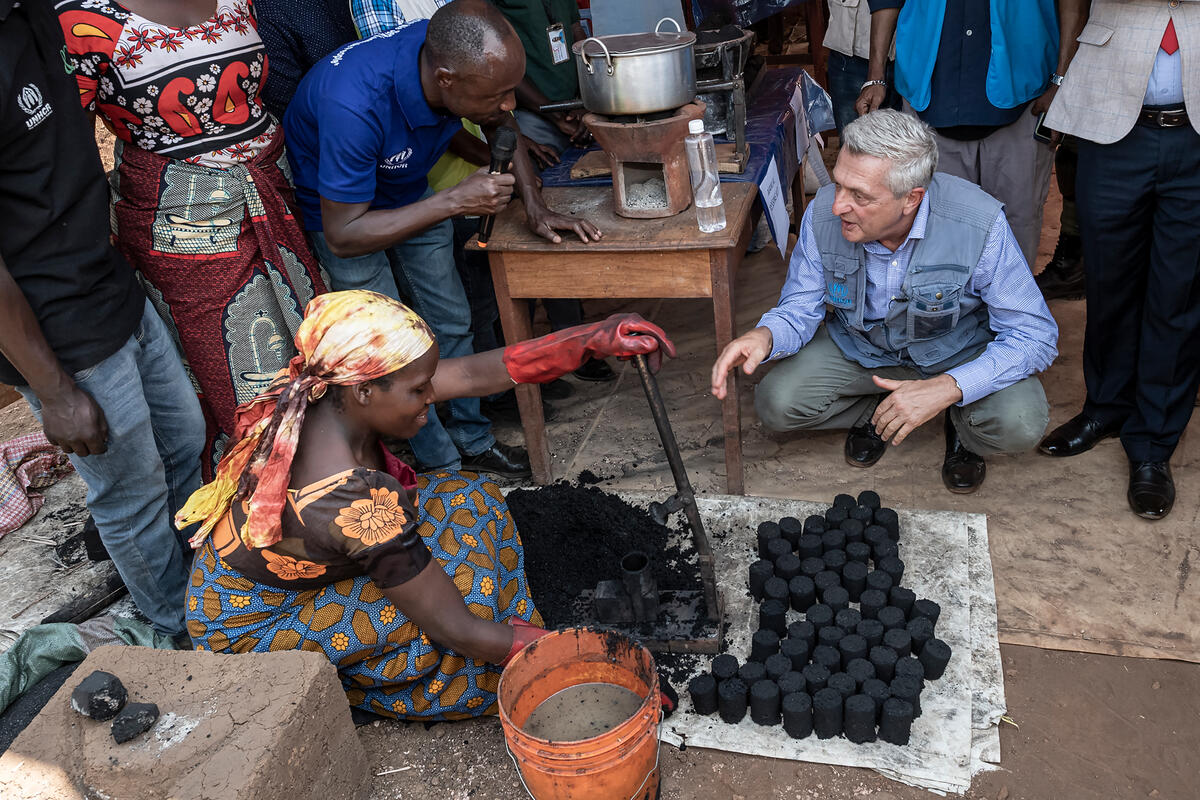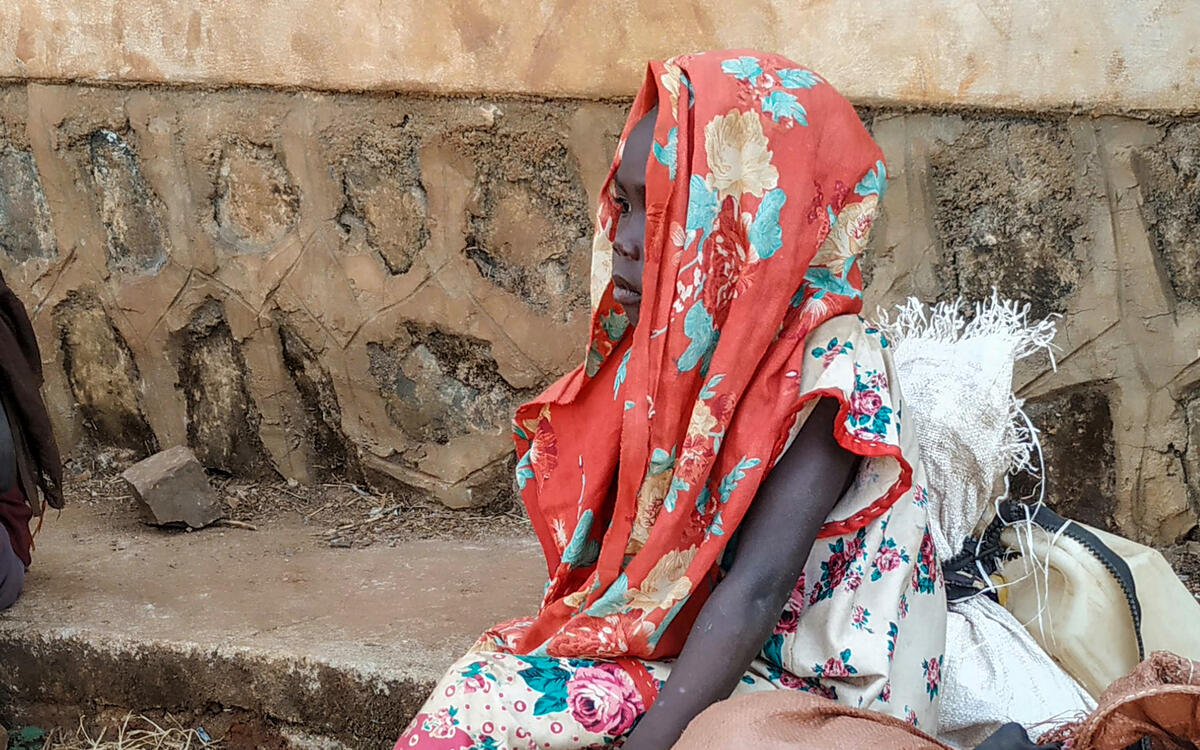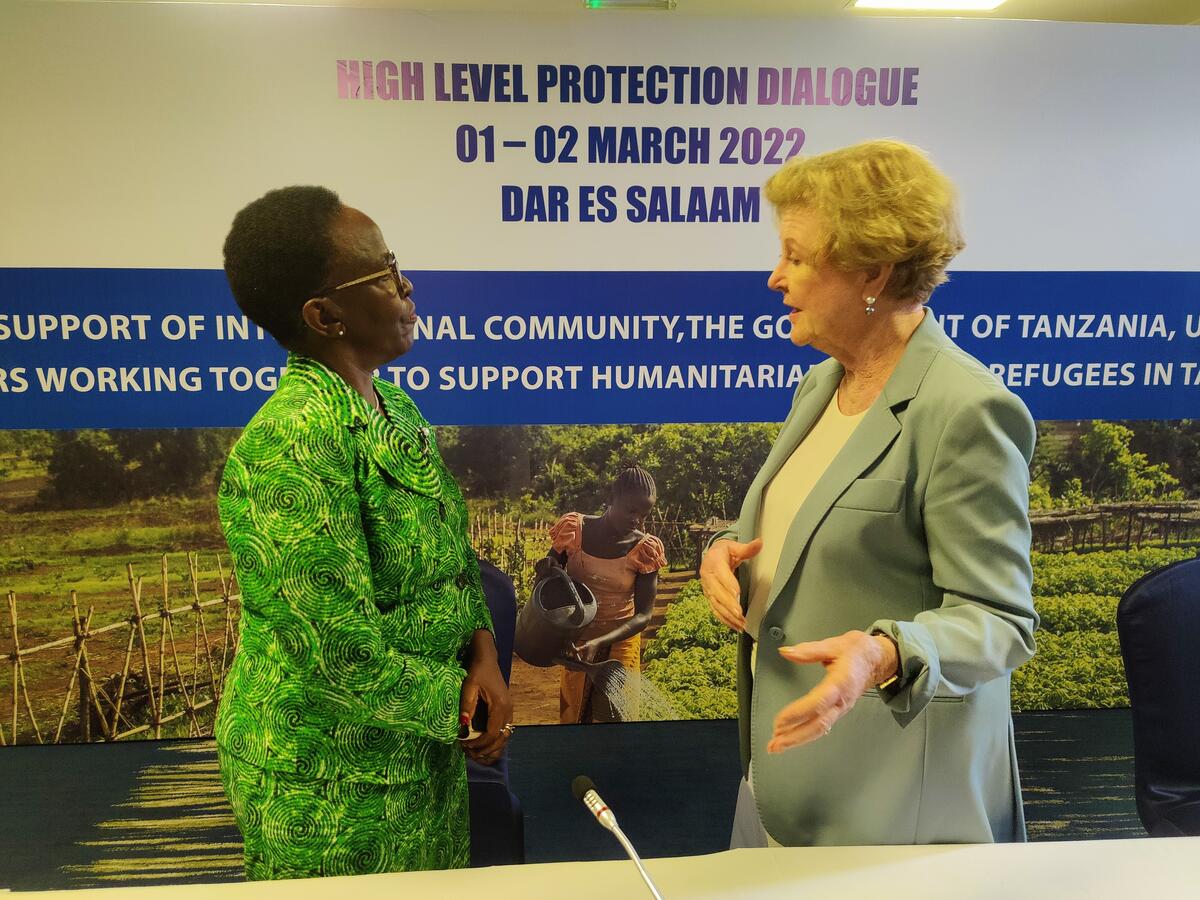Funding crisis endangering return hopes of thousands of Burundians
Funding crisis endangering return hopes of thousands of Burundians
Friday 28 October 2005
GENEVA - The United Nations refugee agency, UNHCR, today warned that it will have to reduce or even suspend its biggest voluntary repatriation in Africa unless it urgently receives the money it has been calling for to help hundreds of thousands of Burundian refugees who want to go home. The agency also said it would have to suspend its support for reintegration activities within Burundi unless funds are forthcoming.
Since 2001, the refugee agency has helped some 285,000 Burundians return to their homeland - 58,000 since the start of 2005 alone. It is UNHCR's largest ongoing voluntary repatriation operation anywhere in the world after Afghanistan. And there are still at least 400,000 Burundian refugees in neighbouring Tanzania alone, many of them wishing to go home.
"It would be a real tragedy to lose the opportunity of helping Burundian refugees realise their dream of returning home because of a lack of money," said Deputy High Commissioner for Refugees Wendy Chamberlin in Geneva on Friday. "It will be deeply distressing to all UNHCR staff if we have to let so many refugees down, and in the next few days we will be doing all we can to make sure the international community hears our pleas and understands how much is at stake."
Out of the $62 million it had appealed for to finance its voluntary repatriation to Burundi in 2005, UNHCR has received only $29 million - a shortfall of 52 percent. The agency is currently relying on emergency funds from its operational reserve to continue its activities for Burundian refugees and returnees. It warns, however, that it cannot rely on such sources for more than a few weeks at the very most.
"This funding crisis could not come at a more critical time for the operation and for the region," Chamberlin added. "It comes just as Burundi is returning to peace and security and settling down to the enormous task of reconstruction and stabilization."
The election of President Pierre Nkurunziza in August effectively concluded the process of political transition that had begun in Burundi with the Arusha peace accords of 2001. His arrival to power triggered a remarkable increase in the number of Burundian refugees returning home. Since August, between 12,000 and 15,000 people have been repatriating every month. Most of them are returning from neighbouring Tanzania, where they had fled to seek refuge from the violence that tore Burundi apart in the mid- and late nineties. Some Burundian refugees, however, have been in Tanzania much longer, having fled a previous wave of violence in the 1970s.
The new Burundian government faces enormous challenges: the reconstruction of homes and infrastructure; the creation of health and education facilities; achieving a stable peace; and reintegrating hundreds of thousands of returning refugees and internally displaced people. This year, UNHCR was committed to building nearly 23,000 homes, 48 schools with a total of 245 classrooms, and 14 health centres. The lack of funds, however, prompted a reduction to 43 schools and 11 health centres. If the current financial crisis continues, all building programmes will halt. Income-generating activities and professional training programmes benefiting some 10,000 people will also be suspended.
In addition to the 400,000 Burundian refugees still in Tanzania, the country also hosts some 150,000 Congolese refugees. Any suspension of the voluntary repatriation because of a lack funds would raise very serious questions about the commitment of the international community to share the responsibility of caring for refugees. With Tanzania itself in the middle of an electoral period, it could only send an unwelcome message at a sensitive time to a country that has shown great generosity towards refugees over the years.









